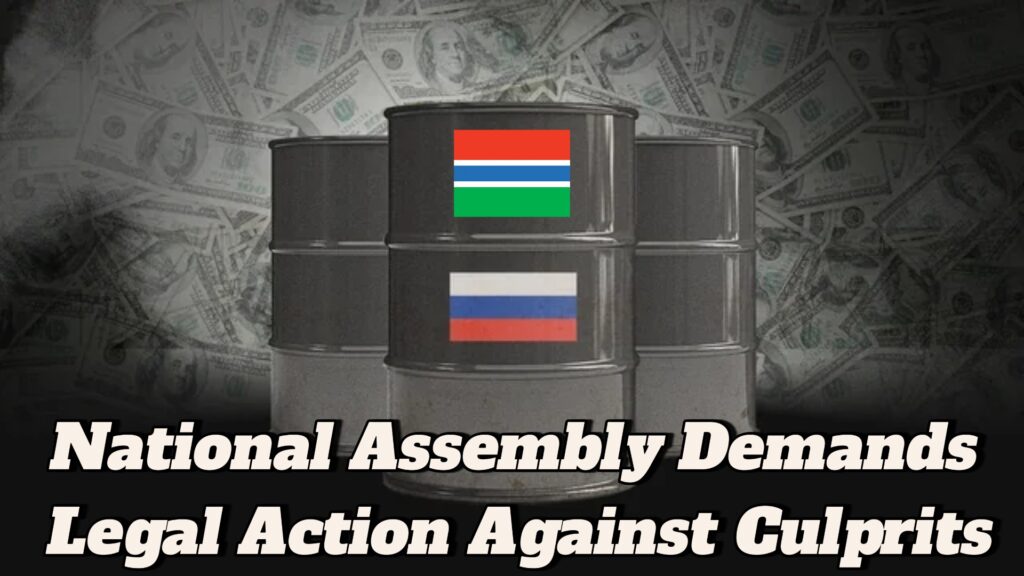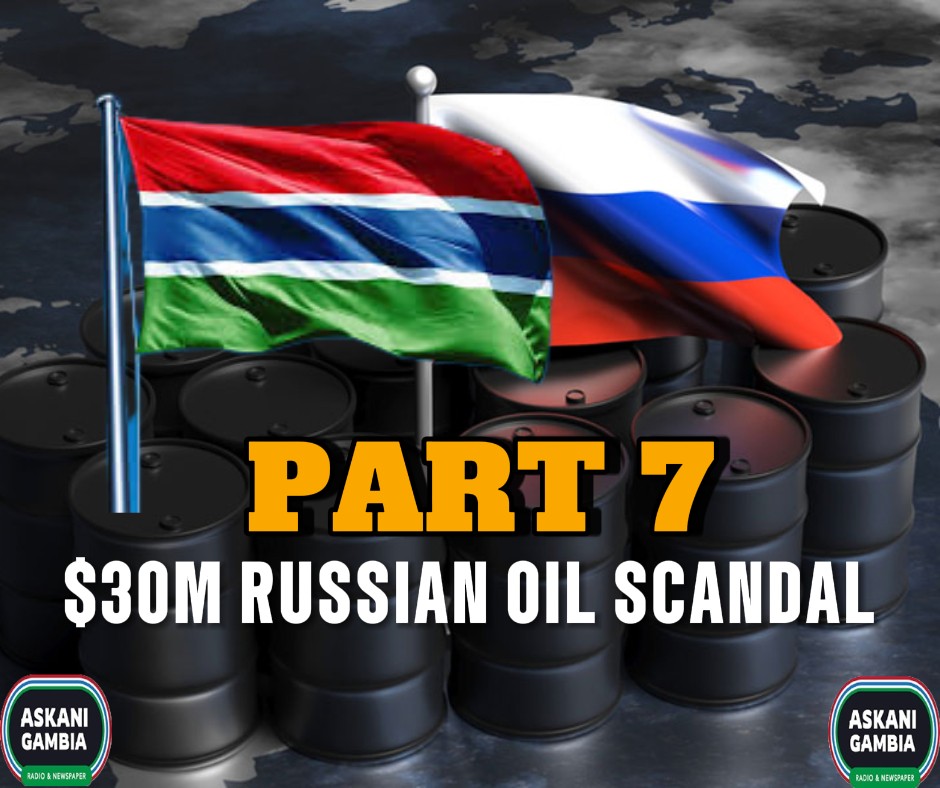
(Fuel Files Series – FPAC & PEC Petroleum Inquiry, 2023–2025)
In Gambia’s petroleum scandal, there was no smoke-filled backroom or duffel bag of cash. If one dares call it that, the corruption was written on letterhead, a single sheet of paper stamped “Access Bank Gambia Ltd.”
That paper, known as a comfort letter, would become the quiet gateway through which tens of millions of dollars in fuel transactions passed, unlicensed, unmonitored, and ultimately unaccountable.
When a Letter Replaces Collateral
Comfort letters are not unusual in international trade. Banks sometimes issue them to reassure suppliers that their clients are credible.
But what happened in The Gambia was different.
According to testimony before the Joint FPAC & PEC Inquiry, Access Bank issued a comfort letter for Creed Energy Ltd, an entity without a petroleum licence under PURA.
The letter promised the bank would “facilitate payment” for petroleum imported by Apogee FZC and sold locally through Creed Energy.
There was only one problem:
Creed Energy was not authorised to participate in the petroleum trade.
When the Central Bank of The Gambia (CBG) was asked about this, it called the act “imprudent and contrary to sound banking practice.”
CBG noted that the bank had extended an assurance for a transaction outside the scope of its client’s lawful business, effectively legitimising a fuel import chain regulators hadn’t even approved.
How a Comfort Letter Became a Currency
The comfort letter worked like a shadow guarantee.
Once issued, foreign suppliers accepted it as proof that payments were forthcoming, and shipments began to arrive.
Fuel changed hands, money flowed through Universal Bank Ltd (UBL) accounts under Creed’s name, and Gam Petroleum’s tanks filled up, all based on a single letter with no legal backing.
When FPAC and PEC later traced the trail, Access Bank admitted it had not confirmed whether Creed Energy held a valid petroleum licence or verified that the corresponding funds were tied to legitimate trade.
Essentially, the bank’s reputation was used as currency to unlock imports that should never have cleared.
Regulators Looked the Other Way
The energy regulator PURA had already been battling with Gam Petroleum’s management over the ullage allocation system.
Its directive to suspend the system was ignored, and by the time the transactions surfaced, hundreds of barrels had moved without clear documentation.
Meanwhile, the GRA and MoPE failed to ensure that the imports were logged in national databases (ASYCUDA and IFMIS).
Each institution assumed the other was watching. None did.
The Central Bank’s Dilemma
CBG’s representatives told the Committee that although Access Bank’s action breached prudential standards, the bank technically did not commit a criminal offence.
This legal grey zone, between “imprudent” and “illegal”, was precisely where abuse thrived.
The Committee was unsparing:
• Access Bank Gambia Ltd facilitated high-risk transactions “without adequate due diligence.”
• It failed to detect unusual fund movements in Creed Energy’s accounts that “could suggest layering and trade-based laundering.”
• And it exposed the entire banking system to reputational risk.
FPAC & PEC therefore recommended a Central Bank compliance audit into Access Bank’s petroleum-linked transactions from 2022–2024, and a review of comfort-letter practices across all banks.
Government’s Reaction
In its official reply on 13 August 2025, the Government confirmed that no direct evidence of bribery, money-laundering, or tax evasion was found against Apogee, Creed, or UBL. Yet, it acknowledged that Access Bank’s conduct “raised material governance concerns.”
The Central Bank was instructed to tighten oversight on non-funded guarantees, comfort letters, and petroleum-sector financing instruments.
No penalties or management changes at Access Bank have been publicly announced since.
What the Letters Really Bought
Access Bank’s comfort letter didn’t just buy trust; it purchased access.
It allowed unlicensed traders to compete with regulated companies, shifted millions through sub-accounts beyond state visibility, and blurred the line between banking facilitation and regulatory evasion.
In a country where a single shipment can sway fuel prices, such lapses aren’t minor but structural.
Voices from the Hearings
“The bank acted as if it were the regulator,” one National Assembly member remarked during the hearing.
“A comfort letter became a blank cheque, not for trade, but for trust abused.”
Another witness from the CBG warned that if such practices spread, The Gambia’s entire banking sector could face international compliance sanctions, threatening correspondent relationships abroad.
The Moral Bottom Line
The Access Bank episode shows how corruption has evolved.
Bribes or suitcases of cash are not needed; all that is required is an official seal on a document that says, “We will facilitate.”
It’s a quieter corruption, hidden under clauses and courtesies, yet far more dangerous because it legitimises what should never be allowed.
Until comfort letters are backed by real oversight, and banks are held to the same transparency they demand of their customers, The Gambia’s financial system will remain one letter away from the next scandal.
By Jallow Modou, Financial Analyst, Washington D.C., USA
Fuel Files Series — Making the Petroleum Inquiry Speak for the People

